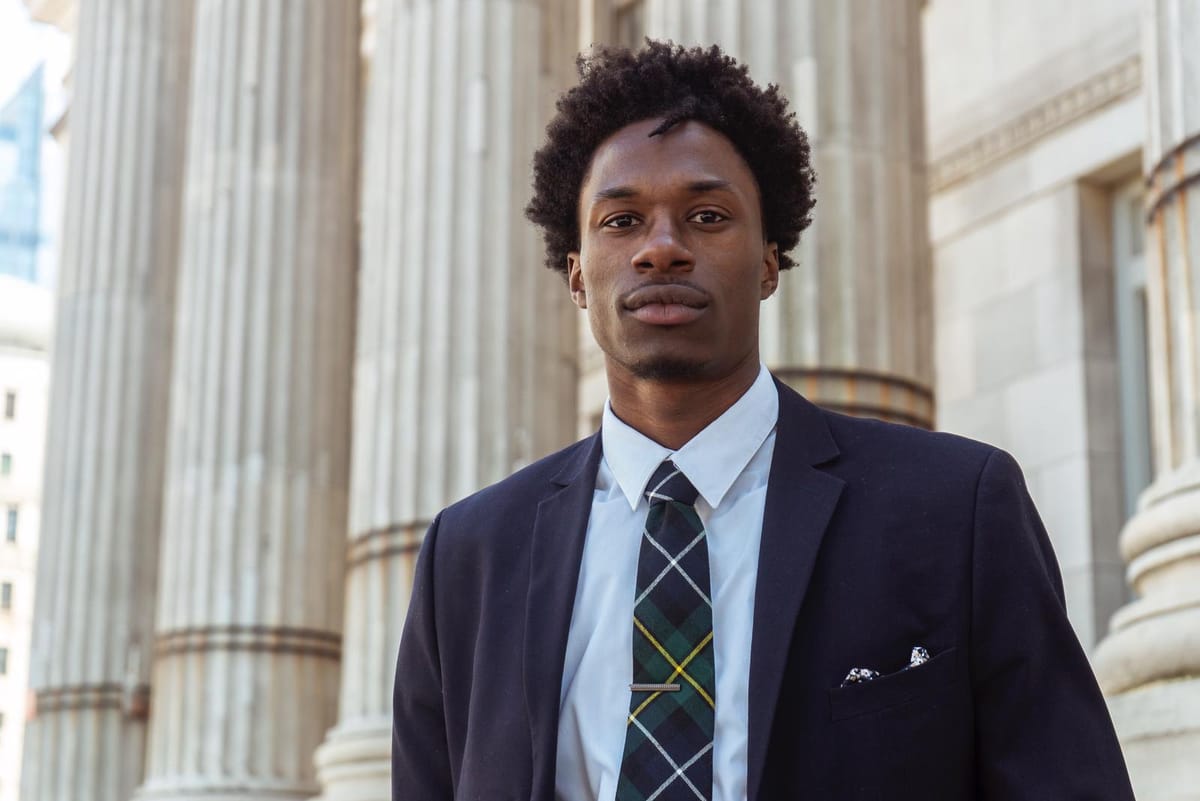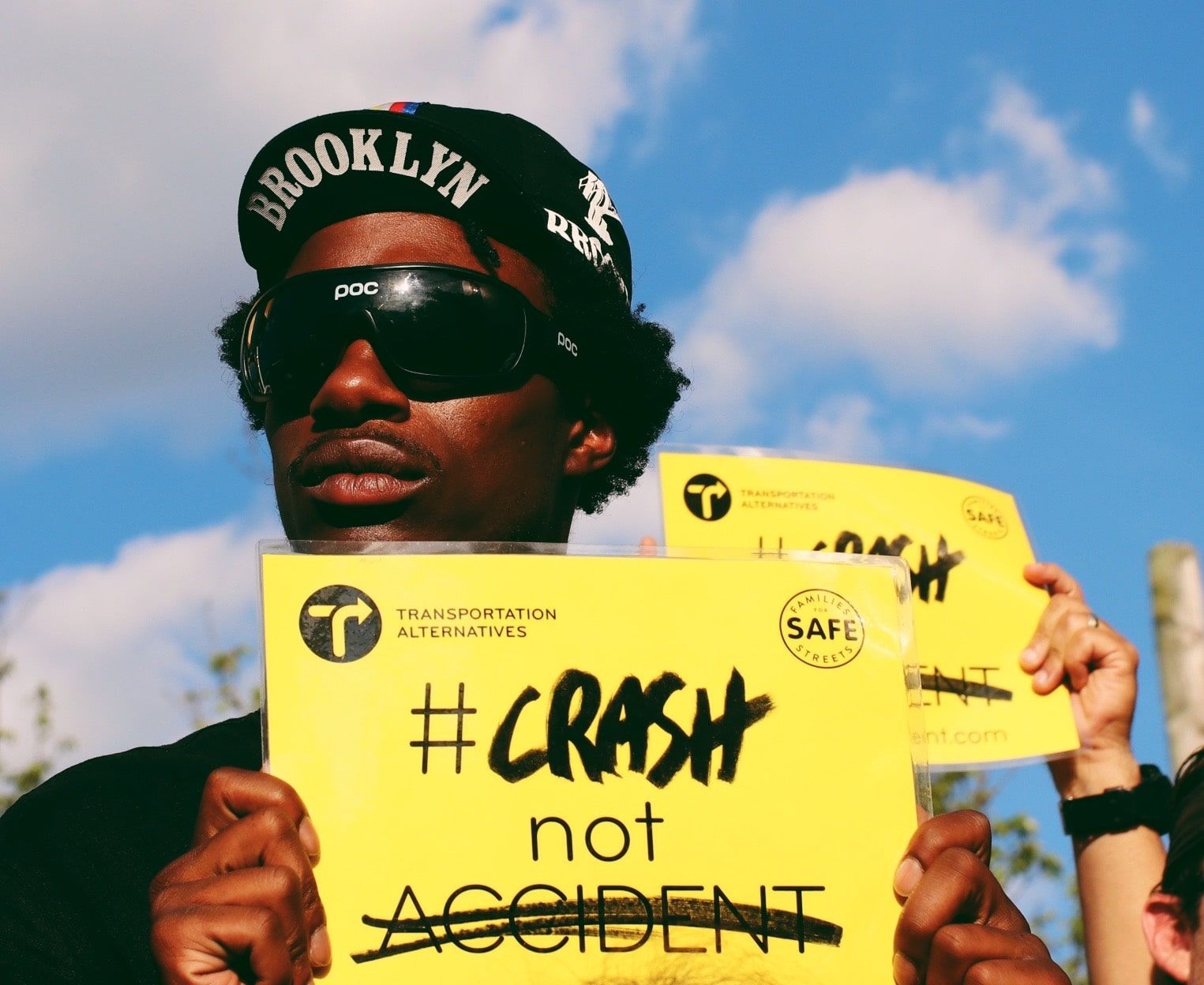Power. Courage. Strength: Hercules Reid On What His Blackness Means To Him


EAST FLATBUSH – Hercules Reid, 27, is not a native Brooklynite. He was born and raised upstate and moved to Delaware to attend college. He didn’t move to Brooklyn until 2015. Four years later, he ran to be the next District 45 Council Member but didn’t make it to the finish line. A year later, he’s working for the Brooklyn Borough President and calls this borough his home. And he wouldn’t want it any other way.
“What does your blackness mean to you?” we asked. He paused for a moment.
“Power. Courage. Strength. That fortitude. Being Black means royalty. I think about Africa. I think about culture. Rich culture. I think about ‘beautiful.’ I am beautiful,” he said. It sounded as if it were a poem. “These are not things I grew up thinking. I had to learn these things. I had to see these things. I had to believe these things. That I am capable. That I am important. That my voice matters. That just like anybody else, I too, can be successful.”
Hercules is a Greek god most known for strength. Reid laughed that whenever people meet him, they ask him, “Where are the muscles?” For him, his strength lies in his brain. Reid studied psychology at Delaware State University, followed by New York City College of Technology, where he studied architectural technology. He’s planning on attending graduate school to study urban planning so he could merge his architectural knowledge with his experience in government. And he might run for office again. But for now, and for the past eight months, Reid has been working for Borough President Eric Adams as his assistant. (He’s actually an assistant to the Deputy BP, but has been Adams’ assistant these past few months because of the coronavirus.)
Since March, Reid’s been on the frontlines, helping everyone who needs it. He’s been giving out personal protective equipment (PPE) to MTA workers, people living in NYCHA, food workers, and healthcare workers. He saw that Adams wasn’t stopping, nor was he sheltering at home– so why should a young, healthy man like he?
“Oh man, I’m telling you one thing I appreciate from being on the ground, is really truly being able to see the changes. The city’s not the same,” he told Bklyner this morning before going to work. “As I drive around, from the time of COVID going into these protests, it feels like I’m living in a video game. Between the boarded up walls, from the protests to COVID where the streets were empty, to seeing runners take to the streets because they didn’t have the gyms.”
And then, George Floyd was murdered. Reid remembers shaking when he woke up and saw the news. He couldn’t believe what he was seeing. He felt numb. He felt frustrated. And he felt tired. As a Black man in this country, this was trauma, he said. He remembers thinking, “I have to do something.”
“It’s not easy being a Black man. You know what it feels like to be wanted for what you can offer, but not wanted for who you really are,” he said. “I’ve experienced what many Black men will probably share with you. I’ve been racially profiled. I’ve walked into the corner stores and seen the clerks look at the TV screens. I’ve been stopped by officers asking me questions saying I fit the profile. I’ve been arrested for reasons, that to me, was something that anybody else would’ve just been let off.”
He remembers being put in a holding cell. He would go through the whole process, and then an officer would come up to him and tell him, “You’re a good kid. I see you don’t have a record. Make sure you don’t end up back here,” Reid recalled. “And I would say, I’m only here because of you. To be honest, I’m not coming back. I wasn’t supposed to be here, to begin with.”

He said moments like these made him think. “I can’t let this get to me as a Black man. I have to wake up tomorrow and pretend this didn’t happen and say that maybe I did something wrong. And it wasn’t them. Maybe I have to do something different so I don’t end up in this predicament again.”
That is what trauma looks like, he explained. Reid has been attending the many protests against police brutality since they began a few weeks ago. For someone who’s often marching, chanting in protests and rallies, the energy of these protests is different for Reid. There’s just so much love. A few days ago, he went to a protest with Public Advocate Jumaane Williams on the Brooklyn Bridge. This was the first time he’d march on the Brooklyn Bridge roadway.
“Seeing the dynamics of the people and the amount that are coming out on a consistent basis, it’s inspiring,” he said. “You’re seeing the energy, you’re seeing the respect, and the love and the connection and the peacefulness of just waning to have our voices heard.”
Reid believes we can end racism by educating our children. It all starts with the youth, he said.
“You teach the kids to love one another. You teach kids how to connect with people socially and culturally. I think that starts with the youth because the people who are creating a lot of these problems, eventually, they won’t be here. But what will be here after them will be who they raised and how they raised them,” he said. “If we start at the homes first and we start teaching our kids what it means to share, to support each other, to love each other no matter the skin color, to think about humanity first.”
When people say ‘All lives matter,’ it doesn’t make sense to him – because clearly all lives don’t matter, if they did we wouldn’t be having this conversation about Black lives.
“All lives matter is what we need. That’s what Black Lives Matter is about. Because for too long, we’ve been left out of that ‘Al lives matter’ conversation.”
There’s been a lot of talk about defunding the police, something Reid doesn’t support. Rather, he thinks that police funding should be reallocated internally.
“I think finding needs to be there to protect a city like NYC. Let’s not all be too far gone to realize that that there are a lot of people in this city and there’s a lot of poverty in this city. And with poverty, comes crime. So let’s fix the poverty portion and maybe we can spend less money on policing.”
He suggested that perhaps the salaries of some high paid administration should be cut, and that money could be split into other places.
“I think jumping to defund doesn’t solve anything, but moving around the funds does. When people say we need all this money for other things in our community, I 100% agree. But that money does exist,” he said. “The police is not the only agency where money needs to be divested from and shifted around.”
“What does the America you want look like?” we asked. There was a pause again. And then, he answered.
“Where racism doesn’t exist. Where there is justice. Where everyone has the same fair shot,” he said. “Yes, there will be trials and tribulations and we can’t control everything, but the America I see is where there is an understanding of these things. And people move accordingly. Laws are created accordingly. Everyone gets a fair chance no matter where you live, no matter your zip code, no matter the color of your skin. This is the America we can, and should be.”



